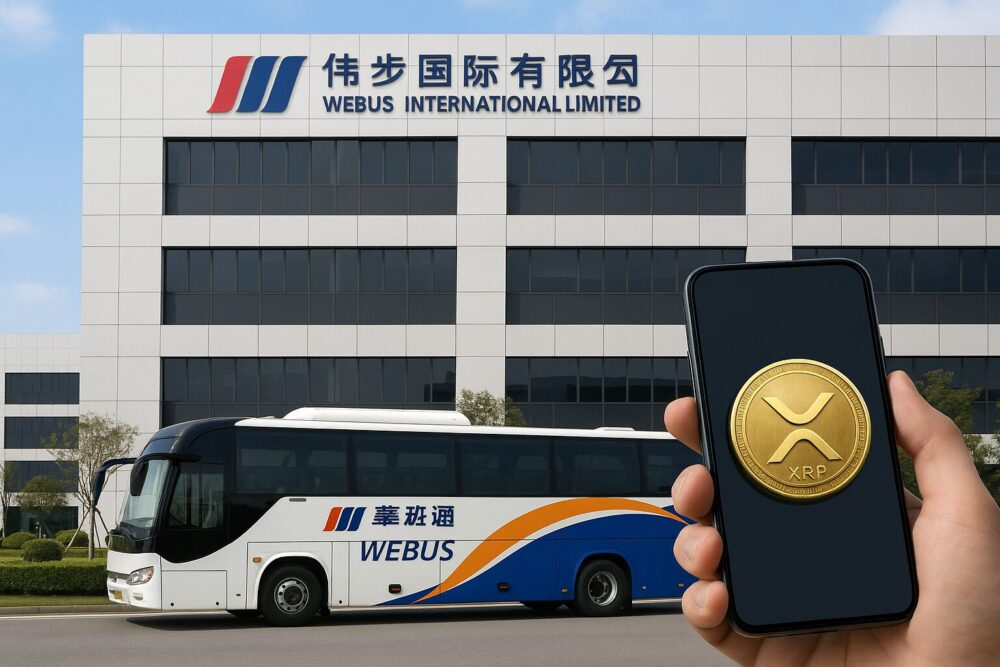Webus International Limited (NASDAQ: WETO), a Chinese mobility and hospitality company, has filed a Form 6-K with the United States Securities and Exchange Commission (SEC), disclosing its plan to raise up to $300 million for an ambitious XRP-focused corporate treasury initiative.
This strategic move places Webus among a small but growing number of public companies actively exploring blockchain and digital assets for operational and financial efficiency.
Webus intention to integrate blockchain technology
Based in Hangzhou, Webus specializes in AI-driven, premium chauffeur services and operates globally through its “Wetour” brand.
With this latest filing, the company signals a serious commitment to incorporating blockchain technology into its business model. It intends to use the raised funds, secured via debt financing or credit facilities, to manage XRP holdings under a newly established digital asset strategy.
Moreover, Webus plans to integrate Ripple’s blockchain-based payment network into its operations. This integration will support faster international payments and improve transparency in bookings and customer transactions.
By leveraging RippleNet’s capabilities, Webus aims to enhance efficiency across its global travel and hospitality services. This move not only supports its core business but also aligns with the broader trend of real-world crypto adoption in enterprise settings.
The company’s XRP strategy goes beyond theoretical planning. Through its SEC filing and strategic agreement, Webus demonstrates it is laying the groundwork for what could become one of the most significant real-world use cases of XRP by a public company. The move underscores a growing institutional interest in digital assets as a component of modern financial infrastructure.
Webus has partnered with Samara Alpha to oversee the potential XRP holdings
In addition to securing financing, Webus has signed a Delegated Digital-Asset Management Agreement with Samara Alpha Management LLC.
Samara Alpha is a top-tier, SEC-registered investment adviser and will act as Webus’s exclusive delegated manager for digital assets.
This agreement outlines a structured and institutional-grade framework for overseeing potential XRP holdings, with an authorized mandate of up to $300 million.
However, it is worth noting that no digital assets have yet been transferred, and the framework will only become active once assets are moved into designated custody wallets.
According to CEO Nan Zheng, the partnership with Samara Alpha reflects Webus’s cautious yet progressive approach to treasury innovation. He emphasized that the agreement offers Webus strategic optionality while maintaining disciplined oversight.
Samara Alpha’s CIO, Adil Abdulali, echoed that sentiment, stating that the firm is well-equipped to provide secure, regulated infrastructure for future crypto asset operations.
Notably, this partnership adds a layer of credibility and governance to Webus’s digital asset strategy, which remains in its preparatory phase.
Webus joins a select group of companies pursuing similar strategies. Firms like VivoPower, a London-based energy company, and Wellgistics, a healthcare logistics provider in Florida, have also announced plans to integrate XRP into their operations.
These developments indicate that XRP, a well-known digital asset created by Ripple Labs, is steadily gaining traction among companies looking to modernize payment systems and diversify treasury management.

